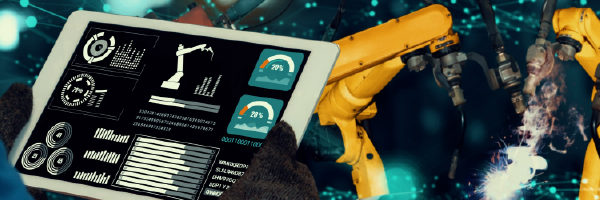Industry 4.0 and Enablement by Mobile Networks
How industry and IoT on mobile networks drive the next wave
2 Minute Read
Industry 4.0, also known as the Fourth Industrial Revolution, represents the next phase in manufacturing, marked by integrating digital technologies into the heart of industrial processes. This shift brings advanced automation, extensive data exchange, and cloud computing into play, fundamentally changing how products are manufactured and delivered. Central to Industry 4.0 are technologies like the Internet of Things (IoT), artificial intelligence (AI), robotics, and cyber-physical systems communicating and cooperating with humans in real time. This evolution allows for more flexible, efficient, and responsive production processes, contributing to more intelligent supply chains and customized products at lower costs.
5G networks are a cornerstone technology for enabling the potent capabilities of Industry 4.0. With much faster data transfer speeds, ultra-low latency, and higher reliability than earlier communication technologies, 5G is poised to provide a robust infrastructure for seamless communication between machines and devices. This upgrade in network performance and bandwidth will facilitate massive data analytics in real-time, allowing for unprecedented levels of machine learning and immediate decision-making on the manufacturing floor and transitioning factory operations to become more adaptive and sensitive to changes in demand or production conditions, increasing efficiency and reducing downtime.
But the real magic happens when 5G and IoT come together. 5G's capacity to connect more devices simultaneously drastically expands the scale at which IoT devices can be implemented in industrial settings. Sensors and actuators, integral components of Industry 4.0, can be installed in various parts of the manufacturing process to gather data on operational efficiency, machine health, and supply chain logistics. The real-time data collected through these IoT devices, transmitted rapidly and reliably via 5G networks, opens up a world of possibilities. It enables manufacturers to create a highly integrated and transparent system. Such systems not only predict maintenance needs and optimize energy usage but also adapt production schedules and methods instantaneously to shifting market demands, embodying the flexibility and resilience principles defining Industry 4.0.